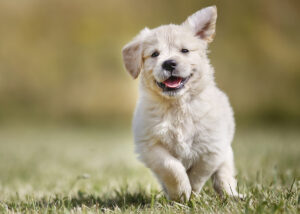
Gardening safely with pets requires a little more thought and careful application to ensure that they are not exposed to poisonous plants or dangerous chemicals.
Gardening is often an incredibly rewarding hobby, which is why it is still such a popular option for many people. Growing your own flowers, bushes, and even food is a feat that anyone can be proud of. Unfortunately, pet owners have some concerns that they need to address before they begin gardening. Gardening safely with pets requires some research and preparation in order to ensure that your pet isn’t being exposed to anything toxic or otherwise dangerous.
Toxic Plants
It can be difficult to remember which plants are toxic to pets and which are not. Thankfully, the ASPCA has an amazing online database of toxic and non-toxic plants for owners to use when they’re not sure. Some common flowers the ASPCA warns against are rhododendrons, azaleas, oleander, foxglove, lilies, and sago palm. In addition, they recommend being extra careful with bulbs, especially hyacinth, tulip, daffodil, and crocus bulbs. The physical response will vary depending on the pet and which bulb they ate, but the symptoms can range from simple nausea to multi-organ failure.
Dangerous Chemicals
There are a lot of chemicals and various mixtures that end up in your garden to keep it flourishing, but many of these are dangerous for your pets. According to the ASPCA, herbicides and insecticides that are applied properly will likely cause mild symptoms if ingested, but rodenticides, slug bait, and snail bait are all highly dangerous and have the potential to be fatal.
Fertilizers and mulch are also problematic and should be used carefully to protect your pet. One type of mulch is particularly problematic—cocoa mulch. While this is s fairly standard mulch that does what most other mulches do, it has cocoa in it—this means it smells like chocolate. The scent is tantalizing to our pets, and they may end up ingesting an excessive amount of it, making them very sick.
Compost Piles
Composting is great for the environment and for your garden, but it can be dangerous for your pets. According to the ASPCA, some common food items that end up in compost piles include “grapes, coffee grounds, garlic and onions,” all of which are toxic to your pets. In addition, food items in compost bins have a habit of growing mold. If your pets find a way to get into the compost bin, they could ingest toxic or moldy food items that could leave them feeling very sick or needing a visit to the veterinarian for more severe issues. If you’re going to have a compost bin, you will need to make sure it is completely pet-proof to keep curious critters out.
Trust Maryland Veterinary Surgical Services With Your Companion’s Health
Your companion’s health is important, and the team at MVSS is ready to provide the best care possible for your furry family. We are dedicated to combining comprehensive exams and assessments with informative and honest discussions of your companion’s care. Once we have worked with you to decide on the best course of action for your dog, our professionals will use their surgical expertise to work towards the goal of giving your companion an active and pain-free life. We are proud to serve loyal companions in Catonsville and Baltimore. To learn more about our services, give us a call at 410-788-4088 or visit us online. For more information and tips for pet health, follow us on Facebook and Pinterest.
